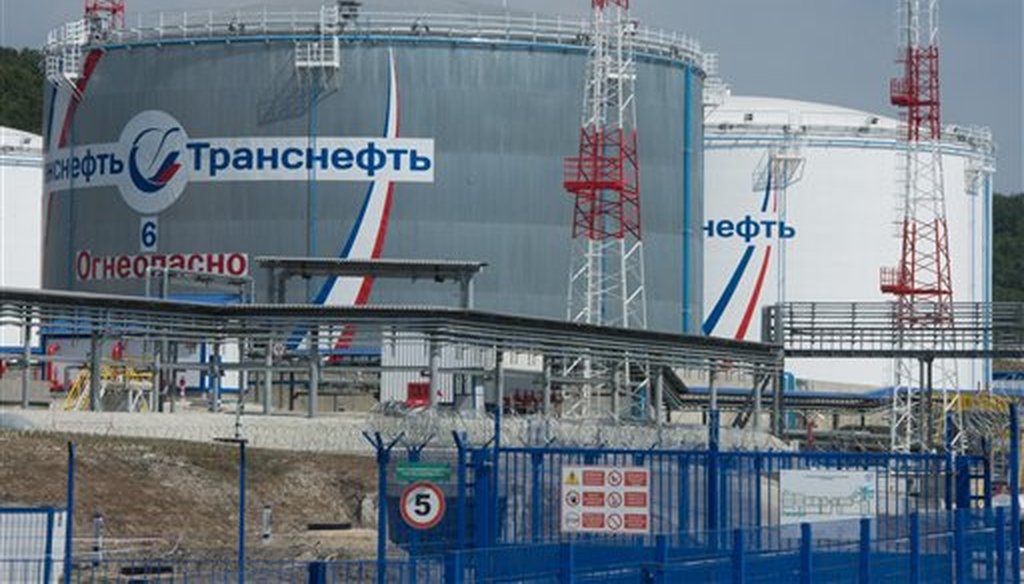But on the international oil and gas markets, other countries would be much harder hit if they cut back on or give up on Russian oil to punish Putin’s aggression. The Netherlands, Germany, Poland and Finland, among other European nations, have been relying heavily on Russian oil, and will now face pressure to buy elsewhere. China also buys a large share of Russian oil exports and would probably be less driven to cut its purchases.
While China could offer a general workaround for Russian economic needs, it’s still unclear how much China will be willing to prop up its neighbor.
"The difficulty that Germany and other European powers faced in deciding how to respond to its buildup of troops owed much to their reliance on Russian gas and oil," Eichacker said. "Any country with cold winters that relies on Russian fuel for heating will be affected."
Replacing Russian gas "will be extremely difficult and, in the extreme event of a total cutoff, would require non-market policy tools and cooperation between the United States, the European Union, and our Asian allies as consumers, and from producers such as Qatar," said Anna Mikulska, a fellow in energy studies at Rice University’s Baker Institute for Public Policy.
While Europe will bear the most direct burdens, she added, there could be follow-on effects for the rest of the world due to the overall supply contraction.
Other areas in which Russia has economic leverage
Beyond energy, Russia is also a world player in wheat. It ranks first in the world in wheat exports, and Ukraine, which it could soon control, ranks fifth.
"Russia’s agricultural exports end up in over 100 countries, with the largest shares going to populous countries in the Middle East, Asia and Africa, including Egypt, Turkey, Nigeria, and Bangladesh," Wengle said.
This means that interruptions have the potential to cause domestic unrest in a range of countries, Wengle said. There’s a historical precedent, she said: "A drought in Russia in 2010 contributed to rising food prices in Egypt, which contributed to popular discontent."
Russia is also an important producer of certain commodities, including palladium, nickel, aluminum, and potash. "Sanctions on those sectors, on major firms, and on the mechanics of exports, such as railways and insurance, can certainly destabilize the international economy," said Yuval Weber, a professor at Texas A&M University's Bush School of Government and Public Service in Washington.
What impacts might Americans feel?
While the United States is expected to suffer less immediate economic impact than many European countries, there will be some. A continued rise in gas prices is the most likely, at least to start, as buyers begin to forgo Russian oil and until additional supply from other producers kicks in. High prices at the pump will be politically painful as well.
"This will be problematic for the Biden administration, as it would be for every administration facing this situation, since voters, and the opposition party, usually blame the administration for high prices at the pump, even though the prices are based on global and not domestic factors," Mikulska said.
The most likely approach for the U.S. and the West is to jawbone other countries to increase oil production, although whether this will be successful remains an "open question," Eichacker said. The U.S. may even attempt to kick-start negotiations with Iran so more of its oil can come to market. On natural gas, Qatar is being eyed as a possible replacement source for European countries, through liquefied natural gas shipments.
Beyond energy, some consumer products could also be affected, possibly worsening the already difficult situation for the global supply chain, Weber said. But these impacts will not be as immediately obvious as energy prices, experts say.
How effective could sanctions be?
The West has not yet exhausted its tools for causing Russia economic strain, including the potential for kicking it out of the international banking program known as SWIFT. The consortium, based in Belgium, carries tens of millions of financial messages between banks per day, easing cross-border payments.
Kicking Russia off the platform would hamper its ability to connect with the rest of the world’s economies, although the West has so far moved cautiously before taking this step, in part fearing blowback on their own economies.
"If the West collectively decided upon it, its leaders could collapse the Russian economy pretty quickly," Weber said. Instead, he said, "the limits are political. What are the off-ramps they want to leave President Putin? What might be his reaction to sanctions that would sooner, rather than later, bankrupt the state and potentially trigger a leadership challenge?"













































